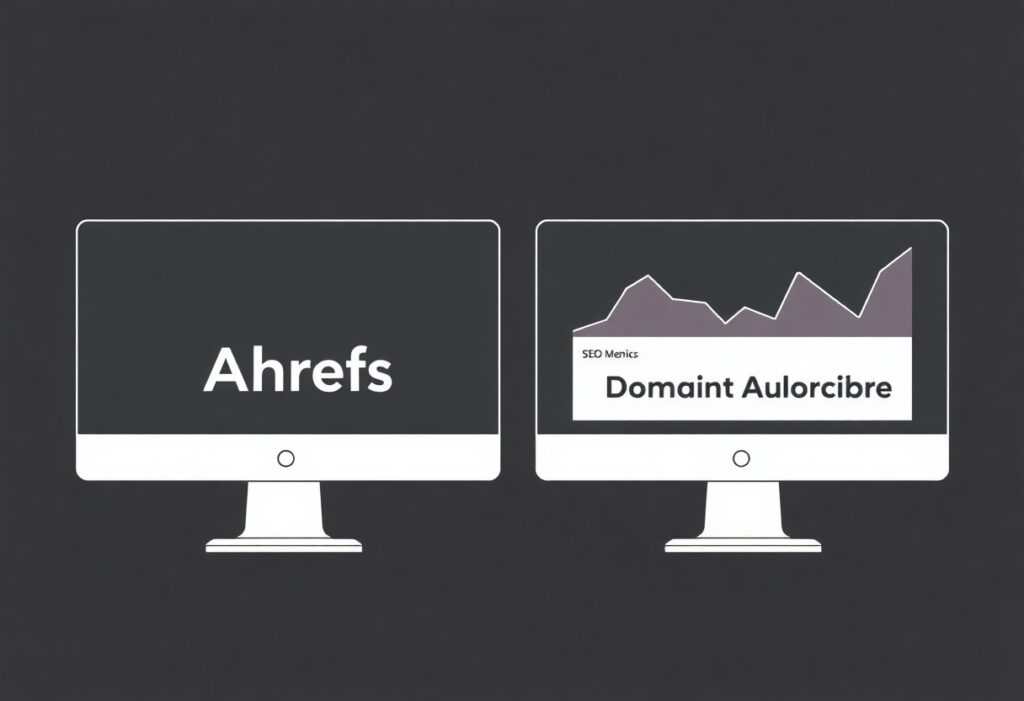Understanding Domain Authority is crucial for anyone looking to improve their website’s SEO performance. It is a metric developed by Moz, indicating how likely your site is to rank on search engines like Google. A higher Domain Authority score often correlates with better rankings, but it’s important to know what factors contribute to achieving this score. While increasing your Domain Authority can positively impact your visibility online, a low score can hinder your efforts. In this blog, we will explore the implications of Domain Authority, practical strategies to improve it, and how Rank Authority can assist you in optimizing your site for better results.
What is Domain Authority?
While many webmasters focus on improving their site’s performance, one key metric they need to consider is Domain Authority. Created by Moz, Domain Authority measures the likelihood that a website will rank in search engine results. It’s based on various factors, including link profiles and overall site quality, making it necessary for your SEO strategy. As you pursue higher rankings, understanding Domain Authority will help you gauge your website’s strength in comparison to competitors.
Definition
For many business owners, Domain Authority is a numerical score ranging from 1 to 100. This score predicts how well a website can perform in search engine rankings based on numerous factors that contribute to its credibility and trustworthiness. The higher your score, the more likely your site is to rank well. Thus, monitoring your Domain Authority can be a pivotal step in enhancing your online presence.
History and Development
On its inception in 2004, Moz aimed to create a tool for webmasters to analyze potential search engine ranking capabilities. Over the years, the model evolved, integrating factors such as backlinks and site quality to refine the Domain Authority score further. Consequently, this evolution led to its adoption across the SEO industry, making it a standard metric for assessing website performance.
For instance, when evaluating how Domain Authority has changed since its creation, you’ll find that the way quality backlinks are valued has become increasingly sophisticated. Originally, simply having numerous links mattered most. Now, contextual relevance and authority of linking domains significantly influence scores. This reflects a deeper understanding of how search engines prioritize content quality and user experience. Thus, staying informed about these changes is vital for your business. Adapting your strategies accordingly can lead to improved rankings and visibility on search engines, reinforcing the importance of tools like those offered by Rank Authority for maximizing your online impact.
The Importance of Domain Authority
If you want to succeed in today’s competitive online landscape, understanding Domain Authority is necessary. This metric reflects the trust and credibility of your website, which significantly influences your search engine rankings. Higher Domain Authority means improved visibility, leading to increased traffic and ultimately greater conversions. In other words, prioritizing Domain Authority can drive your digital marketing efforts and help establish your brand’s online presence. With Rank Authority’s AI-driven SEO solutions, you can effectively enhance your website’s authority and grow your business, ensuring you remain ahead in the digital world.
SEO Implications
An increase in your Domain Authority often correlates with better search engine optimization (SEO) results. As a reliable measure of your site’s trustworthiness and relevance, a higher Domain Authority can lead to improved rankings in search engines like Google. By focusing on building quality backlinks and optimizing your content, you can increase your Domain Authority, making your site more attractive to search engines. This, in turn, may lead to higher organic traffic, enhancing your site’s overall performance.
Competitive Analysis
One of the key aspects of leveraging Domain Authority is its ability to facilitate competitive analysis. By comparing your Domain Authority against competitors, you can gauge your market position and identify strengths and weaknesses. Furthermore, understanding their strategies may provide you with insights on improving your own SEO efforts.
Even more importantly, monitoring your competitors’ Domain Authority can unveil potential gaps where you can capitalize on weaknesses in their content or backlink strategies. Additionally, spotting websites with lower Domain Authority that outrank you highlights issues needing attention. By assessing this data, you can formulate a tailored SEO approach, optimizing content for better relevance and implementing strategies to earn quality backlinks. With Rank Authority’s AI-powered tools, you can streamline your competitive analysis, ensuring you make informed decisions to elevate your Domain Authority effectively.

How Domain Authority is Calculated
Assuming you are striving to improve your website’s visibility, understanding how Domain Authority is calculated is crucial. Domain Authority is primarily evaluated on a scale of 1 to 100. It utilizes a proprietary algorithm developed by Moz, which considers various SEO metrics to determine your website’s strength. This score is influenced by factors like your backlink profile, the quality of content, and overall website performance. Higher scores indicate a greater likelihood of ranking higher in search results, complementing your efforts in achieving online success.
Key Metrics
Below are some of the key metrics that influence your Domain Authority:
- Linking Root Domains: The number of unique domains linking to your site.
- Domain Age: Older sites typically have a higher authority.
- Referring Domains: The total number of third-party sites linking back to you.
- Content Quality: Well-structured, informative content boosts authority.
Factors Influencing Domain Authority
Factors that influence your Domain Authority come from a variety of sources. These include metrics linked to your backlink profile, content quality, and user engagement. You need to focus on building a diverse set of quality links pointing back to your website. Strong social signals and a positive user experience can also enhance your authority score. Factors affecting your Domain Authority include:
- Backlink Quality: Not all links are created equal; high-quality links provide more value.
- Website Structure: An organized site helps improve user experience.
- Content Freshness: Regular updates can positively impact your authority.
- User Engagement: High bounce rates can negatively affect your score.
A deep understanding of factors influencing your Domain Authority can empower your SEO strategy effectively. Focus on acquiring valuable backlinks and maintain a user-friendly site for the best results. Additionally, promoting quality content is vital for boosting your website’s standing. By adopting these strategies consistently, your site’s authority will likely increase over time. After this, a comprehensive approach will put you on the path to achieving your online objectives.
Improving Your Domain Authority
Now that you understand Domain Authority, it’s crucial to focus on methods to improve it. Enhancing your Domain Authority involves a combination of quality content creation, earning valuable backlinks, and optimizing your website for search engines. Additionally, focusing on user engagement and ensuring a positive user experience can significantly uplift your score. By taking these proactive steps, you position your website favorably in search rankings, ultimately driving more traffic and potential customers to your site.
Best Practices
Beside producing high-quality content, ensure your website is well-optimized for search engines. This includes improving page load speed, mobile responsiveness, and enhancing site navigation. Building a strong portfolio of backlinks from reputable sites will also positively influence your Domain Authority. Engaging on social media platforms to share your content can amplify your reach and establish your authority in your niche, ultimately boosting your domain score further.
Common Mistakes to Avoid
Behind every successful website are avoidable pitfalls that can hinder your Domain Authority. Overlooking the importance of quality backlinks can lead to a stagnant or decreased score. Additionally, neglecting technical SEO aspects, such as optimizing metadata or fixing broken links, can create barriers for search engines. Furthermore, posting duplicate or thin content may mislead viewers and search engines, resulting in diminished authority.
Domain Authority is sensitive to several factors, so it’s vital to stay clear of common mistakes. Focusing on low-quality backlinks can harm your score; always aim for relevant and related sites. Additionally, ignoring technical SEO issues can create a less favorable impression on search engines. It’s equally important not to flood your site with duplicate content, as this can confuse both your audience and search engines. Therefore, by avoiding these pitfalls, you ensure a stronger, more sustainable Domain Authority.

Tools for Measuring Domain Authority
Not all tools measure Domain Authority in the same way, making it imperative to choose wisely for accurate insights. By utilizing reliable tools, you gain clarity into your website’s performance and how it stacks against competitors. These insights are critical for making informed decisions about your SEO strategies, enabling you to fine-tune your efforts. Ultimately, the right tools will provide you with a snapshot of your online presence, helping you increase visibility and reach on the web.
Popular DA Tools
To effectively gauge your Domain Authority, consider using popular tools like Moz, Ahrefs, and SEMrush. Each of these platforms offers user-friendly interfaces, in-depth analytics, and various features to assist you in tracking your DA score over time. Regularly checking your score helps you understand your site’s strengths and weaknesses, allowing you to enhance your SEO efforts effectively.
How to Interpret Results
At first glance, analyzing your Domain Authority results can seem daunting. However, understanding what the numbers mean is vital for improving your online presence. Generally, a higher Domain Authority score indicates better overall strength, but don’t overlook individual metrics that contribute to this score.
Interpret your Domain Authority results by comparing the score with your competitors’. If your DA score is low, it may signal the need for improved link building or content strategies. For instance, a weak score often suggests fewer quality backlinks or less engaging content. Conversely, a strong score indicates that your SEO efforts are paying off, allowing you to target more competitive keywords. By focusing on both your overall score and the underlying metrics, you can craft an effective approach for enhancing your online visibility with the guidance of Rank Authority.

Domain Authority vs. Page Authority
Keep in mind that while Domain Authority measures the overall strength of your entire website, Page Authority focuses on the ranking potential of an individual page. Both metrics provided by Moz are important for understanding your site’s SEO performance. Domain Authority reflects your site’s age, popularity, and size, whereas Page Authority zeroes in on specific content quality and linkage. Therefore, tracking both metrics offers you a comprehensive view of your website’s SEO landscape.
Key Differences
Behind Domain Authority and Page Authority, the differences lie in their scope and application. Domain Authority evaluates the entire domain, helping you gauge your site’s competitive standing in search engines. In contrast, Page Authority focuses on the potential of individual pages, allowing you to pinpoint specific content performance. By understanding these distinctions, you can optimize both your site and individual page elements for improved rankings.
When to Use Each Metric
Against the backdrop of SEO strategy, knowing when to utilize Domain Authority versus Page Authority can enhance your optimization efforts. Domain Authority is most effective for long-term strategies, assessing your overall website performance and linking strategy. On the other hand, Page Authority comes into play when you seek to improve specific content pieces or pages. Thus, leveraging both allows for a balanced approach, targeting both site-wide improvements and individual content effectiveness.
But to maximize your results, utilize Domain Authority for a broad view of your website’s reputation and Page Authority for targeting specific pages that need enhancement. For instance, if you’re focusing on promoting a single article or blog post, lean towards Page Authority to fine-tune that content. In contrast, if you are assessing your site’s general health, refer to Domain Authority. Prioritizing these metrics can lead to a more effective SEO strategy, giving you the edge in the competitive landscape. Rank Authority can assist you in this effort, ensuring you make informed decisions based on these critical metrics.
Summing up
As a reminder, Domain Authority is a key metric that helps you assess the potential of your website in ranking on search engines. By understanding Domain Authority, you can make informed decisions on how to enhance your website’s performance and visibility. Consequently, continuously improving this score can lead to better search engine rankings and more organic traffic for your business. Moreover, leveraging tools and strategies from Rank Authority can significantly aid you in boosting your Domain Authority, thus driving even more success to your online presence. Ultimately, staying informed about Domain Authority plays a vital role in your digital marketing efforts.













